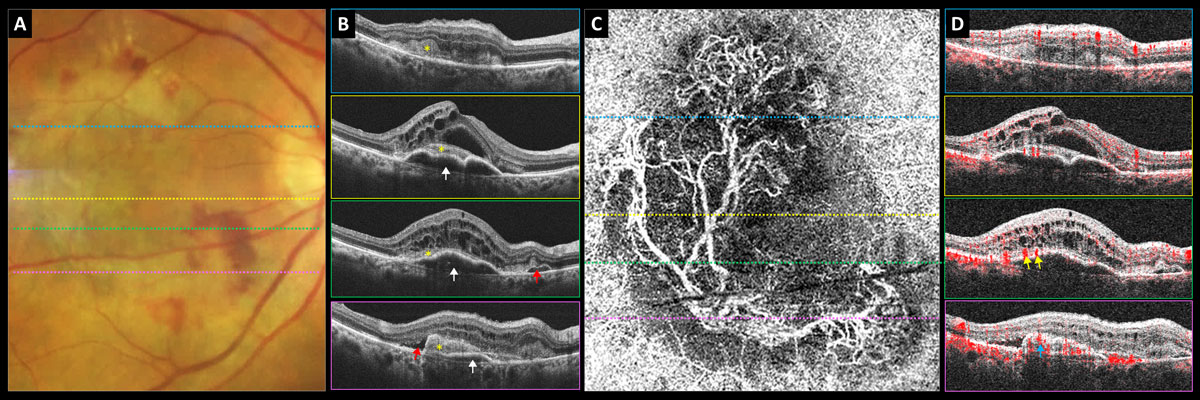 |
|
The most sensitive endpoint for evaluating interventions in early AMD progression could be rod-mediated dark adaptation. Photo: Carolyn Majcher, OD. Click image to enlarge. |
Researchers in charge of the ongoing Alabama Study on Early Age-related Macular Degeneration 2 (ALSTAR2) hypothesized that delayed rod-mediated dark adaptation (RMDA) is the first visual dysfunction to emerge in age-related macular degeneration (AMD). The team recently released findings that suggest RMDA holds promise for evaluating interventions in early disease.
The analysis evaluated one eye from each of the 481 participants, determining AMD disease severity through fundus photos using the AREDS nine-step system. The study authors evaluated the following visual functions: RMDA 5°, acuity, contrast sensitivity (photopic, mesopic) and light sensitivity for a macular grid (scotopic, mesopic, photopic). They found that all were significantly worse with increasing AMD disease severity. Multimodal imaging was used to identify the presence or absence of subretinal drusenoid deposits (SDD).
The data showed longer rod intercept times among early and intermediate AMD eyes with SDD vs. eyes without SDD. Additionally, when compared with normal eyes, SDD-absent eyes exhibited delayed RMDA and wide probability density functions, according to the study authors.
“In summary, our results imply that there is a sequence of different types of visual function impairments as normal aging unfolds into early and intermediate AMD, which may follow the structural changes in the retina and choroid during AMD’s natural history,” the researchers wrote in their paper for Translational Vision Science & Technology. “The largest change in the distribution between visual functions among normal older eyes and those with early and intermediate AMD is delayed RMDA.”
The study authors noted that this work encourages the idea that the most sensitive endpoint for evaluating interventions in early AMD progression could be RMDA. They will continue to investigate this finding.
Owsley C, Swain TA, McGwin G Jr., et al. How vision is impaired from aging to early and intermediate age-related macular degeneration: insights from ALSTAR2 baseline. Transl Vis Sci Technol. 2022;11(7):17. |


